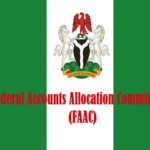The national coordinator of the National Malaria Elimination Programme (NMEP), Dr Perpetual Uhomoibhi has said the end malaria council is currently having about a 48 to 50 per cent funding gap to implement the 2021 to 2025 strategic plan in Nigeria.
Uhomoibhi stated this at the ministerial bi-weekly meeting on the update of COVID-19 response and development in the country’s health sector.
End malaria council is a presidential directive set up to end malaria in line with the African Union mandate.
ALSO READ FROM NIGERIAN TRIBUNE
- Monkeypox Vaccine May Not Be Available Until 2023 — NCDC
- End malaria council suffers 50 per cent implementation funding gap, says coordinator
- End malaria council suffers 50 per cent implementation funding gap, says coordinator
The council is made up of a public-private sector partnership that is meant to ensure that malaria remains high on the political agenda of the country, both at the federal state, and local government levels.
It’s meant to also be a council to provide advocacy to different levels of government such as the legislature, governors, and also resource mobilisation to fill the gap and malaria programme implementation.
According to Uhomoibhi: “Currently when we look at the strategic plan of 2021 to 2025, we have a funding gap of about 48 to about 50 per cent, funding gaps.
“So for us to ensure that all the interventions are covered, we need additional resources beyond what government and partners have provided.
“We have identified some key private sector CEOs that will help us to mobilise additional resources in cash and kind and the chair of the council is Alhaji Dangote, the president and the CEO of the Dangote group and we have members from the National Assembly, the chairman senate committee on health and also the house committee on tuberculosis and malaria as well as the chairman of the governor’s forum, other private sectors, and religious group leaders to be the members of the council.
“So far, the president himself has inaugurated the council and the inaugural meeting is being planned by the national malaria programme in conjunction with the chairman of the council.”
The coordinator also disclosed that beyond the council, the national programme is also implementing seasonal malaria chemoprevention in 21 states of the country.
She said “this is a significant increase from 9 states in the year 2000 and this year for the first time, we are covering all the eligible states including the Federal Capital Territory.
“Seasonal malaria chemo-prevention is the administration of the anti-malaria drug to children at the age of 5, just before the onset of the raining season in over 4 to 5 cycles each year monthly to ensure that children who are the most vulnerable in terms of severe malaria and death are protected during the raining seasons, together with our partners, we are implementing it in 21 states this year.”
“Together with the primary health care development agency, we are developing concept note and expression of interest for us to access that vaccine when it becomes available to other countries beyond those three countries and it is one for children at the age of 5 not for adults. The RTSSAS01 which is the one available is solely meant for children.” She added.






